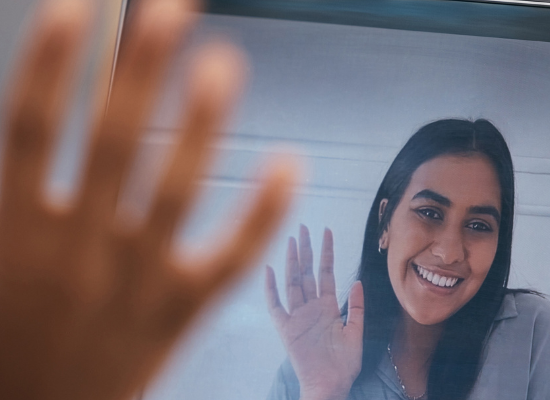
Stephanie Hepburn is a writer in New Orleans. She is the editor in chief of #CrisisTalk. You can reach her at .
One of the most common questions psychiatrists hear from concerned pediatricians reaching out to the Massachusetts Child Psychiatry Access Program, a program Dr. John Straus founded in 2003 that went statewide a year later, is, “Should I send this kid to the emergency room?” With the help of the psychiatrist on the line, they often don’t have to.
The United States is experiencing a child and adolescent mental health emergency and a shortage of pediatric psychiatrists. In May, the American Academy of Child and Adolescent Psychiatry released updated workforce maps showing the rate of practicing pediatric psychiatrists per 100,000 children ages 0 to 17 in U.S. counties and states. For example, in Massachusetts, there are 36 child and adolescent psychiatrists per 100,000 children. In Louisiana and Georgia, there are 10 and 8, respectively. The scarcity means kids and their families often wait weeks or months for an appointment. What is far more accessible, notes Dr. Straus, is a same-day appointment with the child’s primary care physician.
Dr. Straus shares that in 2002—a year before he piloted the psychiatric consultation access line—more kids were presenting to their primary care office in Massachusetts with mental health or substance use problems. “The treatment might have required writing a prescription or something else the pediatricians hadn’t been trained to deal with,” he says. He believed a partnership between pediatricians and psychiatrists could fill a vital gap and provide children and adolescents with rapid care and connection to resources in the community, diverting them from the emergency room. (Youth can face days, sometimes months, in the emergency room waiting for care, especially if they are suicidal or have intellectual and/or developmental disabilities.) So he developed the consultation line with regional 800 numbers so pediatricians could access a local child psychiatrist to help them navigate these challenges and provide community-based referrals.
“Often, the kids just need a refill for a psychotropic medication or a referral to a therapist, not a visit with a child psychiatrist for which the wait could be months,” says Dr. Straus. He wanted the access line to be a one-stop shop. Pediatricians get a consult, and if needed, the psychiatrist could meet with the child through telehealth to determine next steps.
Dr. Straus clarifies that while MCPAP gives pediatricians access to child psychiatrists, he designed it as an educational mentoring, coaching relationship. “Over time, the pediatricians learn what to do,” he says. Pediatricians can attend continuing medical education sessions on depression or anxiety, but the access program provides hands-on experience. “It’s seeing patients with a coach, which is how doctors have always learned—working with a specific family and learning step-by-step.” “The doing is part of the learning.”
The program went statewide in 2004. Other states learned about and adopted the innovation. As the access lines expanded across the U.S., Dr. Straus realized they needed a network—a way for programs to share their experiences and garner national support. He and his colleagues launched the National Network of Child Psychiatry Access Programs to support the programs and work toward the effective integration of mental health in primary care.
However, it isn’t only children and adolescents without access to a psychiatrist. There’s also a dearth of adult psychiatrists, and primary care-psychiatry partnerships could help identify people who are struggling and connect them to care. In 2014, there was growing focus and awareness of perinatal depression (the time during pregnancy and up to a year after a child’s birth). Research by the Centers for Disease Control and Prevention shows that about one in eight women with a recent live birth develops perinatal depression. Dr. Nancy Byatt, a perinatal psychiatrist at the University of Massachusetts, knew that for many mothers (66%), depression begins before the baby is born, with one-third experiencing depression before and one-third developing it during pregnancy. However, more than half of U.S. counties have no psychiatrist, and even more are without a perinatal psychiatrist.
Dr. Byatt and Dr. Straus quickly realized that, as with pediatricians, obstetricians could help fill the gap but similarly needed more training in mental health and substance use disorders. And like pediatricians, obstetricians wanted to help. “There are depression screening tools,” says Dr. Straus, “that obstetricians can use at a first prenatal visit and during pregnancy to help identify women who need help.”
Using the same approach as MCPAP, Dr. Byatt and Dr. Straus developed and launched MCPAP for Moms, connecting all obstetric practices in the state to the new access line. The line provides training and toolkits, real-time psychiatric consultation, and care coordination for providers who serve pregnant and postpartum women. In addition to obstetricians, other adult primary care doctors, nurse practitioners, and pediatricians can use the line. In June 2020, Dr. Byatt, medical director of MCPAP for Moms, told NPR that most doctors didn’t feel comfortable screening their patients for depression. “They said, ‘We want to address this. We think it’s so important. We don’t know what to do. We haven’t been trained. We don’t have the resources,’” she said. Obstetricians told her they needed “a lifeline.”
The “MCPAP” and “MCPAP for Moms” access lines have increased the capacity of frontline providers like pediatricians and obstetricians to identify, assess, and treat people experiencing behavioral health challenges. Today, child psychiatry access programs exist in 46 states, two tribal communities, four U.S. territories, and 19 perinatal psychiatry access programs.
Many of the programs have received 2018 and/or 2021 Health Resources and Services Administration funding. Dr. Straus says this provides excellent seed funding, but sustainability requires insurance reimbursement. In Massachusetts, the state’s department of mental health bills commercial insurers for “MCPAP” and “MCPAP for Moms” access line consults. The access lines don’t collect personal insurance information from patients but do capture what insurance they have through a web-based encounter system. The data reveals that about 60% of children and adolescents have commercial insurance, and 40% have Medicaid; for moms, the split is closer to 50/50. In 2016, the Massachusetts legislature passed a bill that insurance providers must pay their portion of the program’s cost. “We share the percentages with the department of mental health, and they bill the insurer the proportionate amount,” says Dr. Straus. “So, if 25% have Blue Cross Blue Shield of Massachusetts, Blue Cross is going to pay 25% of the program cost.”
When Dr. Straus and his colleagues launched MCPAP, he says they joked they were going to put themselves out of business. “That hasn’t happened,” he laughs. “Our volume is up more than ever, especially with the pandemic, but the calls are getting much harder.” Partnering primary care doctors are getting trained on mental health assessments and are willing to do more. “This helps them expand the tools they use in their practice and helps a family avoid sitting in the emergency department.”
“Before the psychiatry access line, a pediatrician would send the kid to the emergency room because they didn’t think they could do anything. Now they call us, and we’ll work it out together—we’ll figure out how to help the kid until they can see their mental health provider.”









